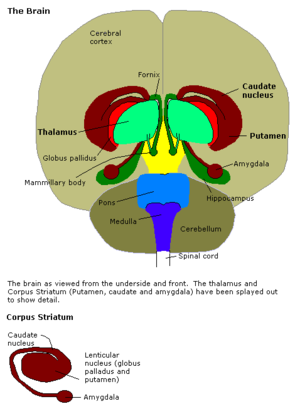Pertinent to us older forum members...... Study of the use of escitalopram (Lexipro)) .... Found to be effective..... one of the authors works for Abbott labs, the maker of it.
Elevated cortisol in older adults with Generalized Anxiety Disorder is reduced by treatment: a placebo-controlled evaluation of escitalopram
American J of Geriatric Psychiatry, may 2011
http://www.ncbi.nlm....les/PMC3424606/Full text
Conclusion: Substantial research suggests that chronic overactivation of the Hypothalamic-Pituitary-Adrenal (HPA) axis incurs wear and tear to the brain and body via toxic effects of elevated cortisol levels.1 This mechanism may be particularly relevant to older adults, for several reasons. First, aging is associated with changes to HPA axis function, as indicated by reduced basal cortisol rhythmicity, suggesting that aging reduces homeostatic control in this system.2-5 Second, aging is associated with decreased corticolimbic connectivity, resulting in the functional disruption of large-scale systems involved in cognition and emotion.6, 7 This results in a decreased ability of prefrontal cortex to modulate the HPA axis response to negative emotions. 8, 9 As a result, emotional states such as anxiety might produce more substantial elevation in cortisol in older adults.10, 11 Third, aging increases vulnerability to adverse effects of elevated cortisol, because compensatory mechanisms preventing its deleterious effects are diminished.1 Finally, many of the putative deleterious health outcomes of HPA axis hyperactivity are age-related problems, including Alzheimer's disease, late-life depression, cardiovascular disease, and all-cause functional and cognitive decline and mortality 12-16.
. . .
Older adults with GAD had elevated total and peak cortisol levels – approximately 40-70% higher than an equated non-anxious sample. It remains unknown how GAD is associated with elevated cortisol in older adults. A possible explanation comes from observations that a sense of control appears to modulate the cortisol response to stress,34 given that a sense of loss of control centrally defines GAD. . .
Note: one author received research support from Forest Laboratories (current), Pfizer, Novartis and OrthoMcNeill Neurologics (until 2007). The other author is an employee of Abbott Laboratories.















